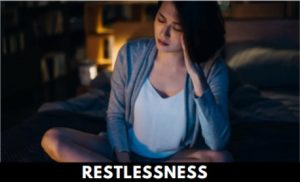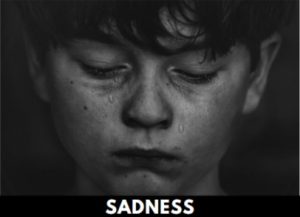Most times we hear people complain of cabin fever and for some reason, some people associate it with a medical condition. It is a wrong notion to do so.
Cabin fever is merely a slang that people use to say that they are irritable and restless mainly because they have been indoors for an unreasonable amount of time.
The circumstance keeping them indoors may be out of their control and is causing them to stay inside the house against their will hence the complaint about cabin fever.
It must also be noted that most times extroverts experience cabin fever because introverts love to stay indoors. While introverts will be comfortable in situations like this, extroverts always look for a way out of it.
In this article, we will be listing ten (10) similar phrases that a person can use in place of cabin fever.
11 Similar Phrases to Cabin Fever
Claustrophobia

Another way to say that someone has cabin fever is to say that they are claustrophobic. A person who has claustrophobia hates to stay in closed or narrow spaces.
This phobia may be caused by some traumatic event the person experienced as a child. Probably they were trapped in a tight space as a child, and this has made them develop a fear of closed spaces.
Hence, we can say that someone has cabin fever when they have an irrational fear of extremely stuffy or confined places. Some of these enclosed spaces could be a tunnel, crowded places, tunnels, cellars, etc.
Climbing the walls
The phrase Cabin fever can be used interchangeably with Climbing the walls. When someone says that they are climbing the walls, it means that are frustrated about staying in a place.
When someone feels trapped and helpless, they will Climb the walls to show that they are very anxious. For instance, a parent can say of their child, that when he’s left at home doing nothing, he climbs the walls in frustration.
Neurosis for confined spaces
You can use the phrase Neurosis for confined spaces in place of the statement Cabin fever. The word neurosis on its own refers to either a mental illness or just any strong feelings of worry or fear.
Thus, when someone has a neurosis for confined spaces, it means that they have a strong fear of staying in a confined space. This may or may not be an illness, either way, it’s another method of saying that a person has cabin fever.
Restlessness

The expression Restlessness is a suitable alternative for the phrase Cabin fever. When a person feels restless, they are unhappy and/or unable to stay still.
The reason for the restlessness would be because they need a change from the environment where they are. It could be that they are bored or worried about the confined space.
Staying in a stuffy place causes them to be anxious and makes it hard for them to concentrate.
Static boredom
Another statement that can be used interchangeably with Cabin fever is Static boredom. A person feels bored when they have nothing to do, or they were doing something but lost interest in it.
Boredom can sometimes be cured by taking the person away from that place or introducing an interesting activity. Static boredom on the other hand refers to the type of that cannot be improved or cured.
When a person perceives that the situation will not improve in any way, they tend to start to panic and feel frustrated, and they would seek a way out to get out of that situation.
Winter blues
A suitable phrase that can replace the statement Cabin fever is Winter blues. A person has winter blues when they feel very unhappy or depressed because of the coldness of winter.
This is because the darkness of winter gets them stuck in a place and then depressed. Medically, it’s called Seasonal affective disorder (SAD) because it only happens to the person during winter.
The tricky thing about this disorder is that most adults who go through it do not even realize that they have a disorder. They just feel themselves going into the depression whenever the season transits from fall to winter.
Sentence examples include – We are about to transition into a new season, and I am sure that I will suffer from winter blues.
Temporary Insanity

The statement Temporary insanity is a suitable replacement for the phrase Cabin fever. When a person is insane, he/she acts out of character and behaves like he never would.
In this instance, the insanity is triggered briefly by the stress of being in a confined space for an unreasonable amount of time. Where it is not a psychotic disorder, it can be referred to as cabin fever.
The stuffiness of the place could trigger a memory or a trauma that the person would have preferred to forget. In this instance, if the term Temporary insanity is used, the person is simply talking about Cabin fever.
Seasonal affective disorder
A person can use the statement Seasonal affective disorder in place of Cabin fever. From its name, depressive episodes are seen at only certain times in a year.
While some people would like to see Cabin fever as a normal thing that happens only in certain conditions, some people view it as a disorder. It is then likened to a traumatic event that the person experienced in the past.
Most times, the disorder arises during winter because that is the period when the person is locked inside the house and cannot go out. During winter, the person loses interest in life and will begin to experience low mood.
A good way to use it is like this – I usually suffer from cabin fever during winter because I’m forced to stay indoors, the doctor called it a seasonal affective disorder.
Indoor distress
Just like its name, Indoor distress is mostly experienced by the person when the person is in a confined place and will not be coming out for a period of time and can also be called Cabin fever.
Indoor distress occurs when a person experiences extreme anxiety or boredom while locked up in a house. There are certain symptoms that are associated with it which include trembling and sadness.
It could be that the person is locked up against his or her wish and is looking for a way to escape. Being locked up in a place can also cause a person to experience physical or mental suffering.
It can be said in the following ways – The snowstorm has been heavy, and I’ve not been able to leave the house. It’s causing me to suffer from indoor distress.
Confined oppression
Another phrase that can be used in place of Cabin fever is Confined oppression. When someone is oppressed, it can be assumed that they are being harmed by a person acting under authority.
They are probably being forced to do something against their will and would like very much to get a break from it. The phrase confined shows that the person is forced to remain in a place.
In this context, although the oppression is coming from a place of authority, it does not necessarily mean that it is a human being that is causing the oppression as it could be circumstances.
Regardless of the person or situation causing the oppression, the person being oppressed will feel like they are being treated unjustly or wrongly.
They will also feel burdened with the thought of having to stay indoors even when they don’t want to.
Sadness

Because Sadness is usually associated with being locked in a place, it can also be used in place of the phrase Cabin fever. Whether seasonal or regular, this occurrence has the tendency to reduce a person’s high spirits.
When a person’s sadness is caused by being forced to be at a particular place, the person will experience different stages of emotions associated with despair.
They will feel helpless because the situation will prove to be out of their control. In that case, the person can say that they are suffering from cabin fever and they would need an escape from it.
To end with
This brings us to the end of the similar phrases to Cabin Fever. Now you understand what this phrase means and the situations where it is used. The list then shows us other ways it can be used or expressed.
The concept of cabin fever was developed when people got stuck in a cabin during a heavy rainfall or snowstorm. Despite the harsh weather, they are still eager to leave the cabin because they feel uncomfortable staying indoors for that long.
Finally, we noted that extroverts are more likely to experience this social illness as introverts are more likely to feel comfortable indoors.